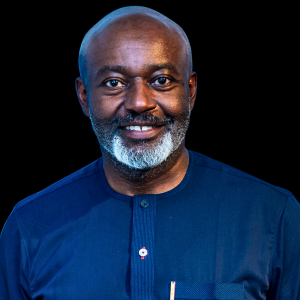Acknowledgement:
- Minister of Arts and Culture
- South African Editors Forum (SANEF)
- Pan South African Languages Board (PanSLAB)
- The National Research Foundation
- Media partners
- All distinguished guests
___________
Ladies and gentlemen,
Distinguished guests,
It is a great honor to address you today at this significant gathering, the Indigenous Languages Media Seminar 2024, as we reflect on 30 years of democracy and the rich tapestry of linguistic diversity in South Africa's media sector.
This event holds special importance as we come together to celebrate our nation's democratic journey and the vital role that indigenous languages play in shaping our media landscape.
Thirty years ago, South Africa began its journey towards an inclusive democracy, emphasizing equality, human rights, and cultural diversity. Language, integral to culture and identity, was central to this transition, with the 1996 Constitution recognizing 11 official languages to promote linguistic diversity and cultural inclusion.
Today, we reflect on our progress and ongoing challenges in promoting indigenous languages in the media sector. Media, as a powerful communication tool, shapes public opinion, preserves cultural heritage, and fosters social cohesion. It amplifies the voices of diverse communities, ensuring no language is marginalized.
In the past three decades, we've seen substantial advancements in integrating indigenous languages into media through community radio, television, newspapers, and digital platforms. These outlets have empowered marginalized communities, promoting pride in linguistic heritage and aiding in the preservation and revitalization of endangered languages.
However, despite these achievements, there is still much work to be done. Many indigenous languages continue to face challenges such as limited resources, lack of investment, and insufficient representation in mainstream media. The dominance of global languages in digital media further threatens the survival of our indigenous tongues. It is imperative that we address these challenges head-on and work collectively to create an enabling environment for the flourishing of all languages.
As we gather here today, we are also mindful of the significance of August 9, the International Day of the World's Indigenous Peoples. This day serves as a reminder of the resilience, strength, and contributions of indigenous peoples worldwide. It is a call to action for us to redouble our efforts in protecting and promoting indigenous languages as a vital part of our cultural heritage and identity.
Furthermore, we are in the midst of the International Decade of Indigenous Languages 2022–2032, proclaimed by the United Nations General Assembly. This decade provides a unique opportunity to strengthen international cooperation, raise awareness, and mobilize resources for the preservation and promotion of indigenous languages. We must seize this moment to reinforce our commitment to linguistic diversity and take concrete actions to protect and promote our linguistic heritage.
We must acknowledge the intersection of linguistic diversity with the broader rights of people of African descent and indigenous peoples, who have faced systemic marginalization and discrimination. The United Nations has emphasized the need to address these injustices and promote the rights of these communities, with linguistic rights being a crucial aspect of this struggle.
To safeguard and promote indigenous languages, a multi-faceted approach involving government, civil society, media organizations, and the private sector is necessary. This includes investing in language education, training media professionals, and leveraging technology for language preservation and revitalization.
We must celebrate the contributions of indigenous language media practitioners and support their efforts to ensure these languages thrive. Linguistic diversity is essential to our democratic values, fostering social cohesion and inclusive development. As we reflect on 30 years of democracy, let us work together to ensure every language is heard, valued, and celebrated.
In closing, I would like to express my gratitude to all the organizers, participants, and stakeholders of this seminar. Your commitment to the promotion and preservation of indigenous languages is truly commendable.
Let us continue to collaborate, innovate, and inspire each other as we strive for a future where linguistic diversity is cherished and celebrated.
I thank you.





